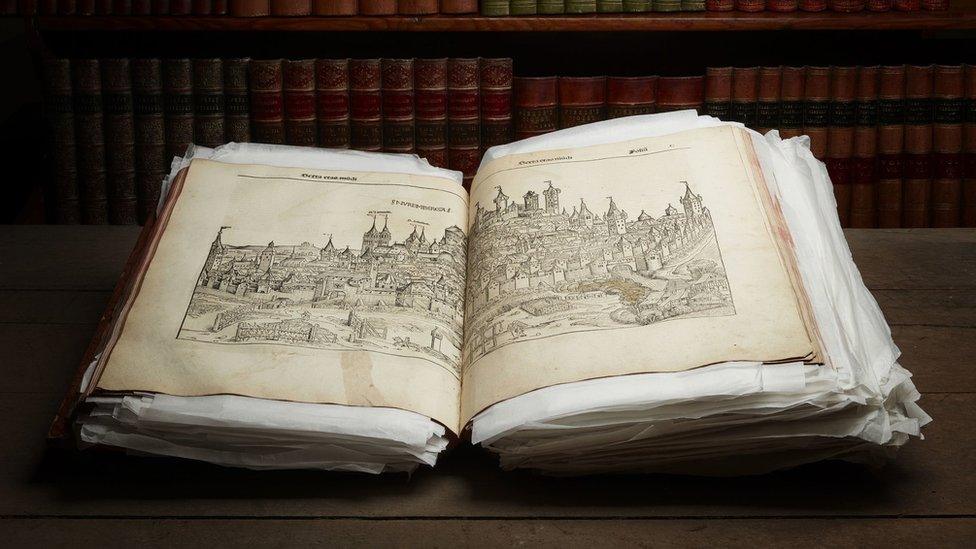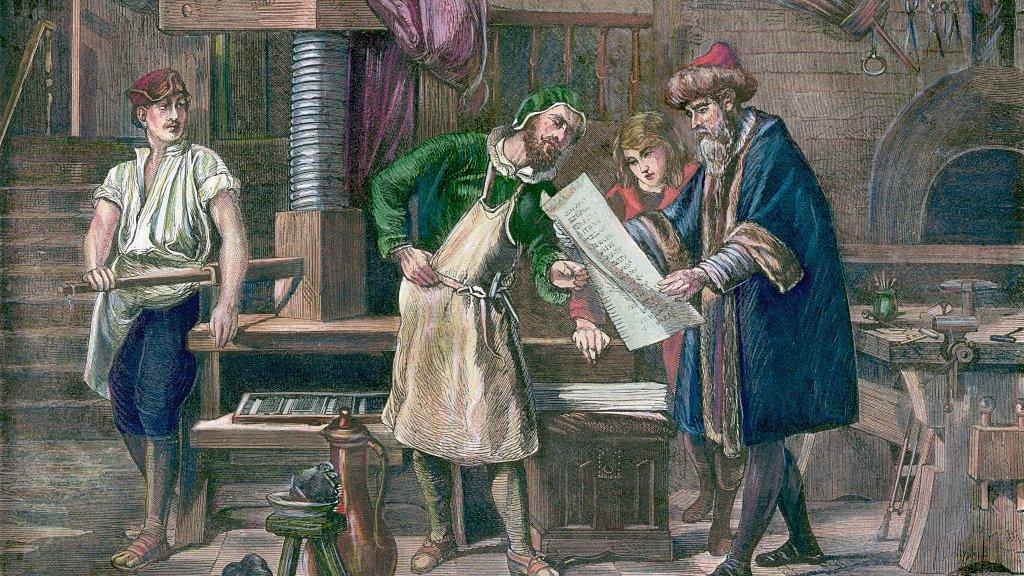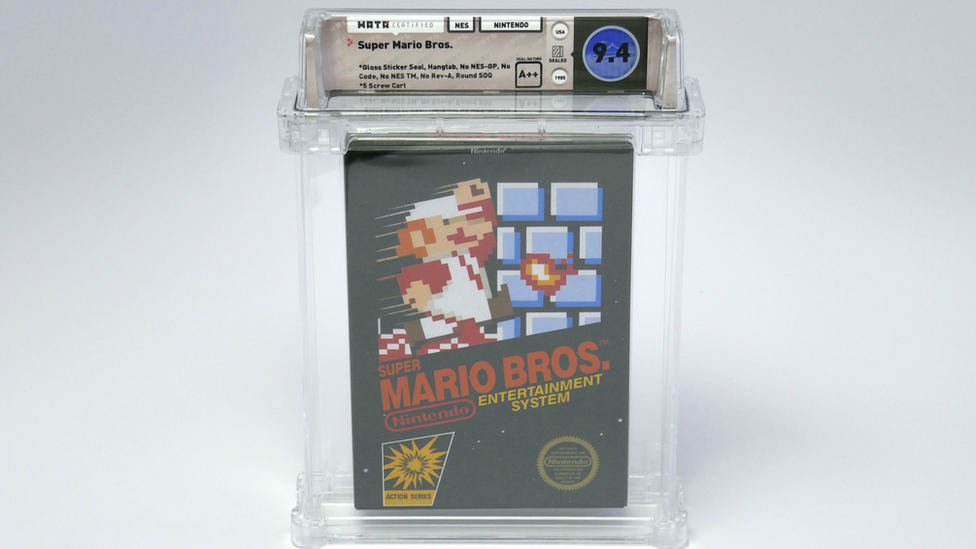Nuremberg Chronicle: Early mechanically printed book up for auction
- Published
- comments

One of the first books to be printed mechanically is about to be sold at auction in Scotland.
The super-rare publication is a copy of the Nuremberg Chronicle produced in 1493 - an account of Christian history from Creation to the 1500s.
It was written in Latin by physician and humanist, Hartmann Schedel and was later translated into German.
It is expected to fetch between £30,000 and £40,000 when it goes under the hammer.
The book was funded by two merchants, Sebald Schreyer and Sebastian Kammermeister and has been in the same family since at least the 1860s.
When was the mechanical printing press invented?
Hundreds of years ago, all books and manuscripts in Europe were painstakingly written out by hand.
Later, printing was done using individually carved wooden printing blocks for each page.

Johannes Gutenberg's invention was revolutionary
But the invention of the movable-type printing press in the 1440s, by Johannes Gutenberg, made printing much faster and cheaper.
Gutenberg found a way to print pages quickly and precisely, using movable metal letters, allowing books to be mass produced.
His invention is said to have changed the world forever and was like nothing anyone at that time had seen before.
When is the auction?
The auction will be run by Lyon and Turnbull in Edinburgh on Wednesday.
Cathy Marsden, Lyon & Turnbull's rare books, manuscripts and maps specialist, said: "It was a delight to see this Latin incunable, a book from the cradle of printing.
"The advent of the mechanical printing press was rather like the creation of the internet in terms of suddenly making information via the written word much more widely accessible.
"Not only did the publication of the Nuremberg Chronicle play a hugely significant part in the history of printing, it is also a fascinating account of Christian history through the eyes of its author, combined with a vast number of elaborate illustrations."
- Published21 July 2022

- Published16 February 2019

